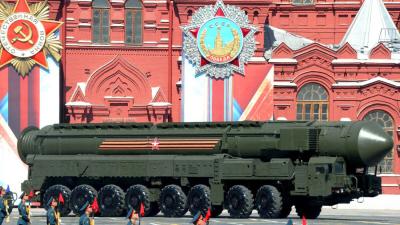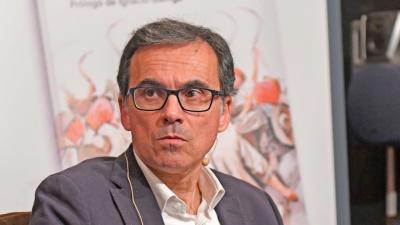Interview with Miguel Ángel Quintana Paz: "More and more people who are dissatisfied with the world realise that Catholicism has the tools to face today’s challenges".
Miguel Ángel Quintana Paz. Academic Director of the Higher Institute of Sociology, Economy and Politics (ISSEP) in Madrid. Professor at the postgraduate program “Expertise in Social Communications” at the Pontifical University of Salamanca. He has been Lonergan Post-Doctoral Fellow at Boston College and postdoctoral researcher under the supervision of Gianni Vattimo at the University of Turin. His works include, among others, the following books: Sapere aude, or is it still possible to call ourselves enlightened?; Rules. An introduction to the hermeneutics with the help of Wittgenstein and Sherlock Holmes; and Normativity, interpretation and praxis. Quintana is a regular contributor to the TV channels Trece, El Toro, 7nn and CyLTV, and to the digital newspaper The Objective.
Álvaro Peñas: In one of your recent articles you mentioned Chantal Delsol’s book on the end of Christianity. Are we facing the end of Christian civilisation?
Miguel Ángel Quintana Paz: We are at a time of serious threats to Christianity and, simultaneously, a time when Christianity itself is battered. The current situation combines both difficulties. On the one hand, Christianity itself is weakening. On the other hand, there is an increasingly strong questioning of our civilisation and Christian culture by the West itself in what could be classified as the Woke mentality.
Wokism is rooted in Christian principles, such as care for victims - but it twists, adulterates and modifies them. And from victim care we move to an idolisation of the victim, of the individual victim, and a strong incentive to victimhood. In Christianity, God himself is a victim in the figure of Jesus, the most innocent victim who is crucified. The moment we take God out of the equation, the God who becomes a victim for us is replaced by victims who want to become gods, goddesses and idols, who claim absolute obeisance and adoration for their supposed grievances. This can be seen, for example, in the fact that Roman law, one of the cornerstones of our civilisation, is gradually beginning to change. Thus, for some crimes, it is not necessary to prove the guilt of the accused, but instead, the accused must prove his innocence – provided he does not belong to the non-victimised groups. Or that absolute truth is only possessed by those who belong to a victimised group. We are no longer all equal before the law, but some are superior to others, and all those who belong to the victimised group have greater recognition.
And we can also see this in the Greek vein of our civilisation. That thread that is committed to rationality and search for truth. Truth is less and less important, and the only thing that matters is what is most favourable to the victimised group. Instead of rationality, the emotions of compassion and empathy towards the victimised groups matter and, therefore, empathy replaces reason as a virtue. Empathy is above the virtues of our classical tradition, such as justice, prudence, temperance or fortitude understood as courage or bravery - a virtue, courage, which is now beginning to be considered negative because it is necessary to be as conniving as possible in the face of a law or group that defends the victimised. And, obviously, in the Judeo-Christian vein which I mentioned before, this means transforming the God who becomes a victim into victims who become little gods.
This Wokism has the characteristics of a religion, for example such as climate fanaticism. It also keeps asking us to make acts of faith, such as denying the reality that is right in front of our eyes.
Indeed it is a religion. Although some people are critical of this idea because they say it is a religion without God, but there have already been religions without God, so it is not a novelty. We have talked about the reasons why Christianity is flagging. but the other requirement for us to be able to consider a situation of danger is the existence of threats, of alternatives. Wokism is an internal threat that corrodes and deconstructs our civilisation, but at the same time builds a new one. Hence Ratzinger's expression "dictatorship of relativism". A relativism that undermines our foundations and has a dictatorial component, as it will eventually give way to a more explicit dictatorship of new dogmas. And then there is the external threat of Islam, the idea that there is a civilisation with different concepts of the relationship between human beings, equality between the sexes, the relationship between the human being and the divine, or the relationship between the religious and the political sphere. Islam is emerging as an alternative, and is increasingly present in Europe and the West. If Christianity is gradually dying out, it will be a viable replacement, as Michel Houellebecq argues in Submission.
Unfortunately, Houellebecq's point is all too real. Many people have lost faith in their civilisation and surrender to an external civilisation, such as Islam.
Deconstruction can and does occur in specific individuals, who suffer from a moment of nihilism, of emptiness. However, it is more difficult to imagine an entire civilisation where everyone thinks that life is meaningless, that good and evil are all the same, or that everything is subjective. That an entire civilisation obeys these assumptions is rather implausible, and in any case not proven at any point in history. For specific individuals, yes, but in the case of masses and peoples any voids, as in case of the physical world, tend to be filled. Therefore, this civilisational vacuum must be filled by something else – which could very well be Islam.
Frightening but true - the gaps get filled.
It’s about seeing the bottle half full or half empty. If we are able to see all these things, it is because the notions I mentioned earlier make sense. They are not alien to us. For example, equality in face of the law, or the assumption that everyone is innocent until proven guilty, are the principles that we not only know but that resonate with us. They look good and positive and should be defended. Let us no longer say that truth matters or that reason matters. There is a large segment of the population that supports these ideas - for example, the idea that the little gods do not have to take the place of the former God, or that we do not have to pay obeisance to anyone who presents himself as a victim. In other words, this hegemony of victimisation sounds bad to them. That is the half-full bottle - the half-empty bottle is that there are more and more of the other people.
And Wokism is more and more aware of its strength.
Indeed. And, above all, of the realisation of its strength, that is, more institutional implantation. Which is terrible for civilisation. The importance of Rome in Christianity is that if it weren’t for Rome, the Greek vein would have remained confined to obscure seminars in philosophy faculties as an attractive philosophy, but it would not have permeated society. And the same is true of the Jerusalemite vein. Rome institutionalises it, gives rise to institutions, to procedures used in the judiciary and government, and to principles that are enshrined in constitutions. If all this had not become civilisation proper in the sense of an institution, it would have remained in the catacombs. In groups as small or even smaller than those I described earlier for Greek philosophy. It would not be what we understand today as Christianity, but something very reduced.
We cannot understand Christianity without Rome. Constantine is the direct heir of the theologian Origen or even of St. Polycarp. Already in the martyrs, like Polycarp, we see the idea that political organisation matters. Polycarp explicitly says that he is obedient to it except on a single point: that which goes against God and forces him, Policarp, to worship something he cannot worship as a Christian. This also appears in St Paul. There is recognition that authority, the institutional, the force made right, the Roman element, matters - and that it would be the desirable for that force not to oppose God, but rather favour him. For example, Origen, whom I quoted earlier, says that it is a great success of Providence to have placed Jesus, to have placed the Christian message, in the midst of the Roman Empire, because it will allow it to expand and end up becoming something universal, as the universal was understood at that time, which was the Roman Empire. It is an idea that goes beyond the catacomb, the temple and the community of believers alone, and aspires to be configured as the force that organises a civilisation.
It must be said that the Church of the catacombs was a highly organised group, and was already setting up a network that Constantine and Theodosius would later rely on. And that network after the barbarians’ time would sustain the remains of the Empire: a network of dioceses, bishops, charitable institutions and organisations, of care for the poor and the sick. A whole hierarchical network. That’s why I stress the importance of Rome, although all the three elements must be defended. If you don’t have a solid philosophical vision of truth and reason, the edifice will collapse, as imperial Rome did. And if you don’t have a perception of the moral and the religious, it will also collapse, because the thought and the institutions are not enough. This is the discovery of those first centuries: knowing how to combine these three things which, since then and for 1,700 years, have constituted the most estimable civilisation on Earth.
You have mentioned the catacombs. It seems that many Christians want to go back to them, to hide underground. And by staying away from the world and not defending their beliefs, they are giving all the ground to those who want to put an end to their faith.
Indeed, there are Christians who like to take refuge in small communities. Psychologically, some find it comforting to think that they are among the chosen few who remain safe from the immoral world. This is un-Catholic. It is true that throughout history there have been groups who have thought this way, but this is not a Catholic option, even if many Catholics now act this way. And then it is a comfortable option because you can go on with your life, stay in your epicurean garden, while the world is sinking. But this attitude is not intelligent; it amounts to believing that if I feed the tiger, the tiger will leave me alone. It surely will not. In the end, the state and the laws will come into your garden and impose their way of thinking.
Theoretically, it is a position that does not respond to the Christian message; it is a manipulation of that message that is very much influenced by the progressive thinking of the 1960s against institutions and that many believe is related to the early Christian communities. This is an erroneous view of the past because when you go to the actual testimonies you find that those Christians did not think like 1960s hippies - they thought like first, second or third century Romans. They thought that maintaining institutional structures that favoured justice was good, and that the cost, losing spiritual purity and becoming contaminated by the world, was worth it.
However, despite this crisis of Christianity, in one of your latest articles you consider Catholicism to be fashionable.
Yes, I tried to make the expression “Catholicism is in fashion” mean the same as when we read in a fashion magazine that one type of trousers or another are going to be worn. In other words, it points to a trend that may not become the majority trend, but it does indicate where things are going to go. We are beginning to perceive that different people, from very different spheres, are rediscovering the importance of Catholicism in a new way, as is always the case with trends. The statistics show that in the youngest segment of the population, between 18 and 23 years of age, there has been a rise in Catholicism by three points, from 8 to 11. And from that to other phenomena, because more and more people who are dissatisfied with the world realise that Catholicism has the tools to face today’s challenges.
Do you think this trend is part of what is being called the Conservative Revolution?
Yes, I think there are obvious connections. There is a revolt against the modern world that takes many forms. Some turn to less presentable or more questionable elements, such as Islamism or the totalitarian systems of the 1930s - and in my view they are mistaken. But in that revolt there are also some people who turn to the elements of Christianity. This does not mean that those people will become believers or go to mass, but rather that, instead of thinking in terms of moral compliance or inner faith, they will turn to those elements that are present in the culture, hegemonic and institutionalised. To put it in an image: There are people who will probably not go to a Christian church to pray, but who will defend that church from being destroyed even with their lives. Those Christians, who some call cultural and who appreciate Christianity even if they are not necessarily Christians, are the most promising trend for the defence of our civilisation.
Photo of Miguel Ángel Quintana Paz: Chema de la Cierva
Read also
Interview with Ludwig Brühl - ADF (Alliance Defending Freedom) International
“There is no place in a free society for the punishing of individuals who share their peaceful and honest views on the important issues of our time”
Álvaro Peñas
“Fear is Kremlin’s favourite argument and the one most used by Russian propaganda”: An interview with Oleksandr Shulga
Dr. Oleksandr Shulga is the director of the Institute for the Study and Analysis of Russian Conflicts (IKAR), the only Ukrainian institution that sociologically monitors what is happening in Russia and currently focuses on analysing Russian propaganda through what is published in Russian media and social networks.
Álvaro Peñas
Interview with Yobana Carril
“I never thought that in Spain I would see that the same crime committed by two individuals would be punished differently depending on their sex”
Álvaro Peñas
Manuel Acosta: “Since the very foundation of Spain, neither Catalonia could be understood without Spain, nor Spain without Catalonia”
Interview with Manuel Acosta Elías, PhD in Hispanic Philology, graduate in Geography and History from the University of Barcelona and VOX MP for Barcelona in the Parliament of Catalonia, where he is the spokesman for the University, Culture and Education Committees.














Comments (0)